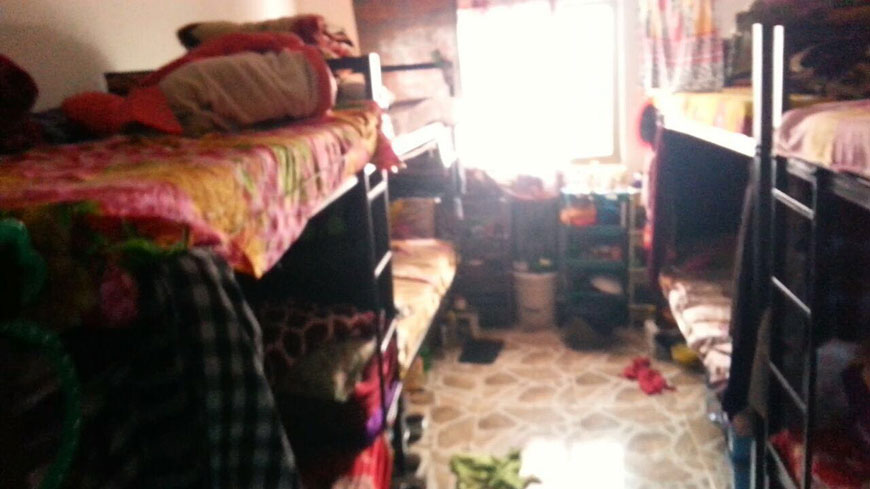AMMAN — Authorities are investigating reported human trafficking offences committed against dozens of labourers in a garment factory in Irbid, a security source said Wednesday.
Located in Al Hassan Industrial Estate, the plant in question has been under inspection for about two weeks after the alleged illegal practices were brought to the attention of the Public Security Department’s (PSD) Anti- Human Trafficking Unit by Tamkeen Fields for Aid, a civil society organisation.
“Investigations maintained that the violations might border on human trafficking,” a source from the Anti-Human Trafficking unit told The Jordan Times on condition of anonymity.
Over 100 labourers of the factory were reportedly held in “unhygienic” and “overcrowded” rooms, with 10 workers crammed in each room.
The workers were allegedly subjected to forced labour, beating, arbitrary lay-offs and humiliation at the hands of the facility’s owner and one of his directors, both of whom are non-Jordanians, according to the source.
“The workers, who include Jordanians, Sri Lankans and Bangladeshis, lived in unsanitary and unsuitable housing and were forced to work for very long hours without getting paid fairly,” the source noted.
As an example of inhumane practices, one of the female workers was beaten in front of other employees for “staying long in the toilet”.
The file is now in the hands of Ramtha Attorney General Badr Abu Dalu, said the PSD source, who noted that the factory owner and director were arrested last Wednesday but were released on bail pending further investigation.
Tamkeen interviewed the workers and heard their complaints after receiving information that three of the labourers were arbitrarily laid off when they protested against their conditions.
“After hearing the workers’ testimonies and inspecting the place they lived in, we reported their case to the PSD Anti-Human Trafficking department,” Tamkeen Director Linda Kalash told The Jordan Times.
Kalash added that the director of the factory took the passports of 38 Indian and Bangladeshi workers four months ago on the pretext that he wants to issue work permits for them, but he has been in possession of the documents ever since.
“Some of the female workers were subjected to physical abuse by the factory owner,” a Tamkeen report said.
“The factory holds their salaries until the 10th of each month, which harms them and their families back in their countries. The workers... had to stay and accept these really bad circumstances, because they knew that if they went back to their countries, it [would] be impossible for them to find jobs there,” the report added.
“The housing did not have a kitchen; the workers are not allowed to have any sick leaves, whatever the severity of the sickness,” it said.
“The workers were also not medically checked since they started work,” she said.
Kalash called for activating inspections in industrial zones, where labourers still fall prey to human trafficking.
The PSD source noted that the sensitivity of the issue prompted the police to cooperate with legal and human rights experts during investigations.
The Kingdom has ratified several international agreements related to human trafficking, such as the Protocol to Prevent, Suppress and Punish Trafficking in Persons, Especially in Women and Children, which is part of the United Nations Convention against Transnational Organised Crime.
In addition, Jordan has adopted a national strategy to combat human trafficking, which focuses on prevention, protection, law enforcement and international cooperation to eradicate the phenomenon.
